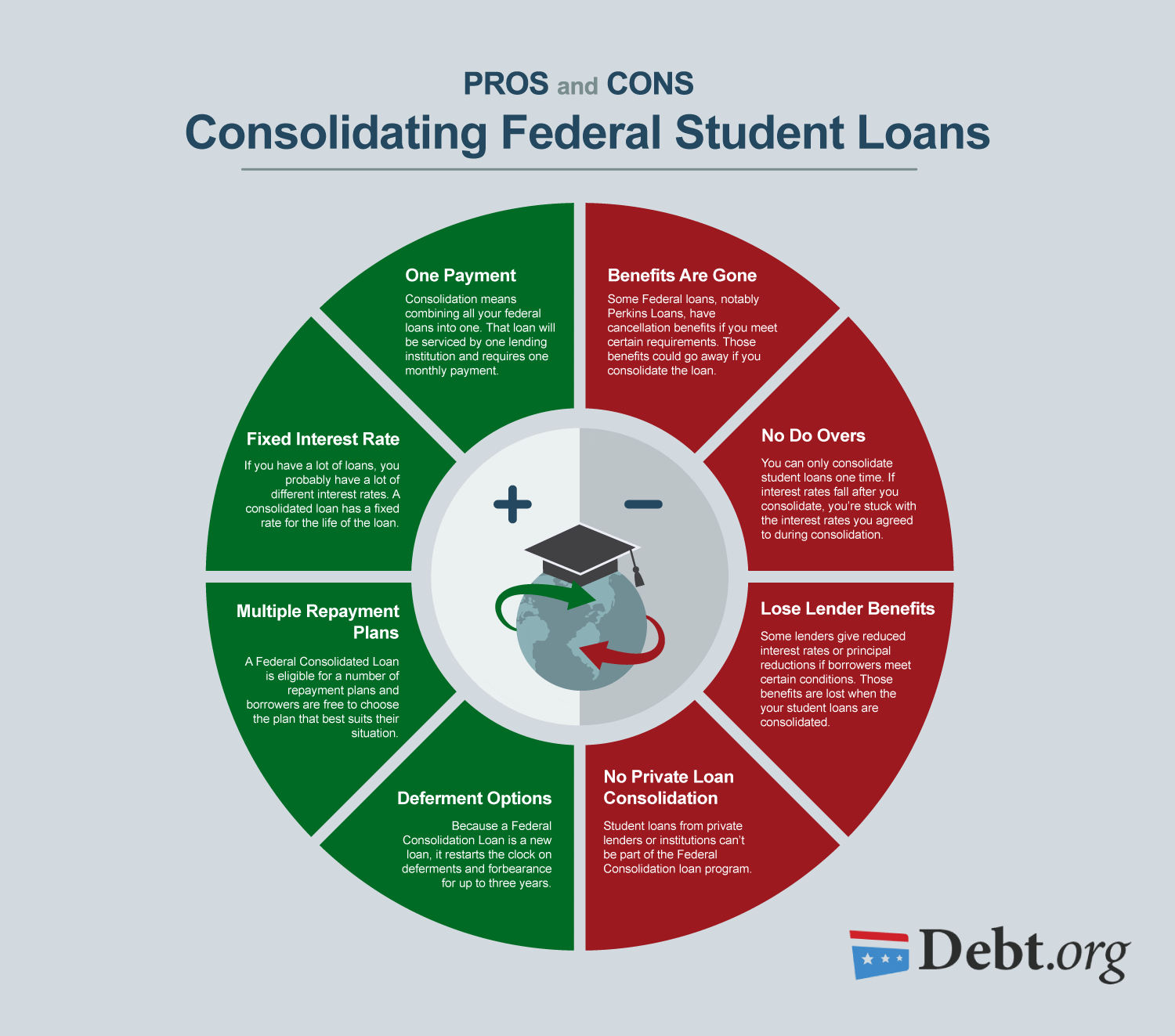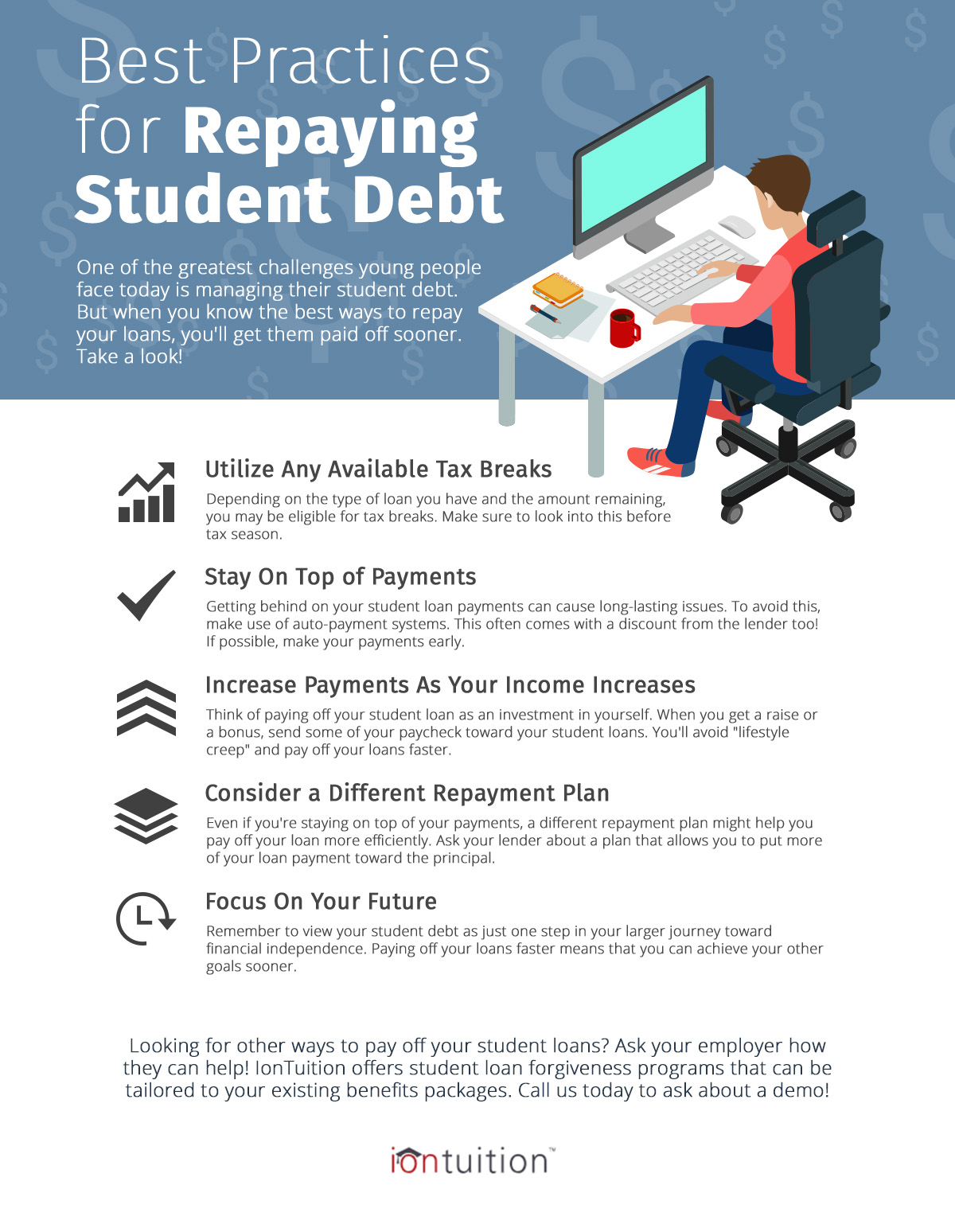
Say Goodbye to Debt: Best Ways to Pay Off Student Loans
Written: Editor | October 4, 2023

Create a budget and financial plan
Are you feeling overwhelmed by your student loan payments? It's time to take control of your finances and pay off those loans. Creating a budget and financial plan is a crucial step in finding a path to financial freedom.
Assess your income and expenses
Start by evaluating your income and expenses. Take a close look at your monthly income, including your salary, side hustles, and any other sources of income. Next, list all of your expenses, from rent and utilities to groceries and entertainment. Understanding where your money is going will help you identify areas where you can cut back and allocate more towards your student loan payments.
Prioritize student loan payments
Make your student loan payments a top priority. Consider making extra payments towards your loans or refinancing them to get a lower interest rate. Every dollar you put towards your loans helps reduce the overall amount you owe and saves you money in the long run. Additionally, look into income-driven repayment plans or loan forgiveness programs that may be available to you.
Remember, paying off your student loans takes time and effort, so be patient with yourself. With a solid budget and financial plan in place, you'll be on your way to becoming debt-free and achieving your financial goals.

Explore loan repayment programs and forgiveness options
If you're struggling to pay off your student loans, don't panic! There are several options available to help you make your payments more manageable. Here are two of the best ways to pay off your student loans:
Income-driven repayment plans
One of the most effective ways to pay off your student loans is through income-driven repayment plans. These plans set your monthly payments based on your income and family size, making them more affordable. Additionally, after making payments for a certain number of years, any remaining balance may be forgiven.
There are several income-driven repayment plans to choose from, such as Income-Based Repayment (IBR), Pay As You Earn (PAYE), and Revised Pay As You Earn (REPAYE). Each plan has different eligibility requirements and repayment terms, so it's important to research and find the one that suits your needs best.
Public Service Loan Forgiveness
If you work in the public service sector, you may be eligible for Public Service Loan Forgiveness (PSLF). This program forgives the remaining balance on your federal student loans after you have made 120 qualifying payments while working full-time for a qualifying employer, such as a government or non-profit organization.
To qualify for PSLF, you must be enrolled in an income-driven repayment plan and work full-time for a qualifying employer. It's essential to carefully review the requirements and ensure that you meet all the criteria to take advantage of this valuable program.
Remember, paying off student loans takes time and patience. But by exploring loan repayment programs and forgiveness options, you can find a way to make your payments more manageable and eventually become debt-free.

Increase your income and reduce expenses
Paying off student loans can sometimes feel like an overwhelming task, but with the right strategies, you can tackle them effectively. Here are some of the best ways to pay off your student loans efficiently.
Finding a side hustle or part-time job
One of the most effective ways to generate extra income to pay off your student loans is by finding a side hustle or part-time job. This could be freelancing, tutoring, or any other skill that you can monetize. By dedicating a few hours every week to a side gig, you can earn additional money that can be directly put towards your loan payments.
Cutting unnecessary expenses
Another effective strategy is to evaluate your expenses and identify areas where you can cut back. Small changes in your spending habits can make a significant impact in the long run. Start by creating a budget and tracking your expenses. Look for areas where you can reduce costs, such as eating out less frequently or canceling unused subscriptions. Redirecting these saved funds towards your student loan payments can help you pay off your debt faster.
Remember, paying off your student loans requires discipline and consistency. Implementing these strategies will not only help you pay off your loans sooner but also give you a sense of financial freedom. Stay focused on your goal, and before you know it, you'll be celebrating your student loan repayment

Make extra payments and strategize repayment
If you're burdened with student loans, you may be wondering how to pay them off as quickly and efficiently as possible. Here are some strategies to help you tackle your student loan debt:
Snowball vs. Avalanche method
The Snowball method: This approach involves paying off your smallest loan balances first, regardless of their interest rates. By focusing on clearing smaller debts, you gain a sense of accomplishment and momentum, which can motivate you to continue paying off larger loans.
The Avalanche method: With this approach, you prioritize loans with the highest interest rates first. By tackling high-interest loans right away, you save more money in the long run. While it may take longer to see progress, this method can save you more in interest payments.
Setting achievable repayment goals
Review your income and expenses: Take a close look at your monthly income and expenses to determine how much you can allocate towards your student loan payments. Consider making adjustments to your budget to free up extra funds for loan repayment.
Create a repayment plan: Set realistic goals and timelines for paying off your loans. Break down your total debt into manageable chunks and identify how much you can afford to pay each month. Stick to your plan and celebrate small achievements along the way.
Remember, paying off student loans takes time and dedication. Stay motivated and strive to make consistent payments. With a well-thought-out strategy, you can overcome your student loan debt sooner than you think.
:max\_bytes(150000):strip\_icc()/debt-forgiveness-how-get-out-paying-your-student-loans.asp-Final-ef57becb1d764492828f548041b9ab58.jpg)
Seek help from loan servicers and professionals
If you find yourself struggling to pay off your student loans, don't worry, you're not alone. There are several options available to help you manage your debt and create a plan that works for you. Here are two ways you can seek help from loan servicers and professionals:
Contacting loan servicers for assistance
When it comes to repaying your student loans, your loan servicer is your primary point of contact. They can provide valuable information and resources to help you navigate the repayment process. Reach out to them and ask about any available repayment plans or options that could make your monthly payments more manageable. They can also help you understand loan forgiveness programs, deferment or forbearance options, and provide guidance on how to avoid defaulting on your loans.
Consulting a financial advisor or student loan counselor
Sometimes, it can be beneficial to seek professional advice when dealing with student loan debt. A financial advisor or student loan counselor can review your individual situation and provide personalized guidance. They can help you create a budget, explore loan consolidation options, and provide strategies to pay off your loans more efficiently. These professionals have expertise in managing student loan debt and can help you develop a plan that suits your financial goals and circumstances.
Remember, reaching out for help is a sign of proactiveness and responsible financial management. By seeking assistance from loan servicers and professionals, you can gain valuable insights and develop a plan to successfully pay off your student loans. With the right support, you'll be on your way to financial freedom sooner than you think.

Consider refinancing or consolidating your loans
If you're struggling with student loan debt, you might be wondering what options are available to help you pay off your loans faster. One of the best ways to manage and potentially reduce your student loan debt is through refinancing or consolidating your loans.
Understanding the benefits and risks
When you refinance or consolidate your student loans, you essentially take out a new loan to pay off your existing loans. This can offer several benefits, including:
-
Lower interest rates: Refinancing or consolidating your loans may allow you to qualify for a lower interest rate, which can save you money over time.
-
Simplified repayment: Instead of making multiple monthly payments to different loan servicers, refinancing or consolidating allows you to make a single payment to one lender.
However, it's important to consider potential risks as well. When you refinance federal loans, you may lose access to federal benefits such as loan forgiveness programs or income-driven repayment plans. Make sure to weigh the pros and cons before making a decision.
Researching reputable lenders
Before choosing a lender to refinance or consolidate your loans, it's crucial to conduct thorough research. Look for lenders that offer competitive interest rates, flexible repayment options, and excellent customer service. You may also want to consider their reputation and reviews from other borrowers.
Another important factor to consider is the eligibility criteria of each lender. Some lenders may have specific requirements regarding credit score, income, or employment history. By researching different lenders, you can find the one that best fits your financial situation and goals.
Remember, refinancing or consolidating your student loans can be a smart strategy to pay off your debt faster, but it's essential to make an informed decision. Take the time to understand the benefits, risks, and options available to you before taking the next step in managing your student loan debt.
:max\_bytes(150000):strip\_icc()/FinancialGoalsforStudents-HowandWhytoSetThem-e34ddb0ea3af47c79e6a83826762b326.jpg)
Stay motivated and disciplined
Are you feeling overwhelmed with your student loan debt? Don't worry, there are several effective strategies you can implement to pay off your loans and achieve financial freedom. One of the most important aspects is to stay motivated and disciplined throughout the repayment process.
Tracking progress and celebrating milestones
Keeping track of your progress and celebrating milestones can provide a sense of accomplishment and motivation to continue tackling your student loan debt. Start by setting achievable goals, such as paying off a certain amount each month or reaching a specific debt-free date. Use a budgeting tool or spreadsheet to monitor your payments and see how far you've come. As you reach significant milestones, reward yourself to stay motivated. Treat yourself to a small splurge or celebrate with a friend or loved one.
Creating a support system
Having a support system can make a big difference when it comes to paying off your student loans. Share your goals and progress with friends, family members, or online communities to keep yourself accountable and receive encouragement along the way. Consider finding a mentor who can provide guidance and advice based on their own experience with student loan debt. Additionally, surround yourself with people who have similar financial goals, as they can offer valuable support and share strategies that have worked for them.
By staying motivated and disciplined, tracking your progress, and building a strong support system, you can effectively pay off your student loans and achieve financial freedom. Remember, it may take time and dedication, but with perseverance, you can overcome your debt and embark on a brighter financial future.

Conclusion
Paying off student loans can be a challenging and overwhelming task, but with the right strategies, it is absolutely achievable. By prioritizing your loan repayment, you can save money on interest and gain financial freedom sooner.
Benefits of paying off student loans early
-
Saving money: Paying off your loans early can save you thousands of dollars in interest payments over the life of the loan. It frees up your income for other financial goals.
-
Better credit score: Clearing your student debt can improve your credit score, making it easier for you to qualify for loans at lower interest rates in the future. It opens up opportunities for homeownership, car financing, and other big-ticket purchases.
-
Reduce stress: Student loans can be a source of stress and anxiety. By paying them off early, you eliminate that burden and enjoy peace of mind.
Advice for long-term financial success
-
Create a budget: Track your income and expenses to ensure you have enough funds to make extra loan payments while covering your other financial obligations.
-
Consider refinancing: If you have good credit and a stable income, refinancing your student loans can help you secure a lower interest rate, potentially saving you money.
-
Explore loan forgiveness or repayment assistance programs: Depending on your field of work or income level, you may be eligible for programs that offer loan forgiveness or repayment assistance.
-
Stay disciplined: Make paying off your student loans a priority, even if it means making sacrifices in other areas of your life. Stay committed to your repayment plan to achieve long-term financial success.
Remember, everyone's journey to paying off student loans is unique. Find the strategies that work best for you and stay focused on your goal of becoming debt-free.



